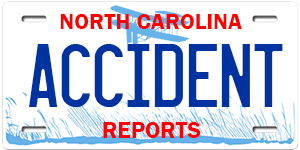Do I Have To Report a Collision to My Insurance in North Carolina?
Accidents happen, and when they do, it’s essential to know your rights and responsibilities, especially when it comes to reporting collisions to your insurance company. North Carolina has its own set of rules and regulations regarding this matter, and understanding them is crucial to ensure you’re on the right side of the law while also safeguarding your interests.
Reporting Requirements for Motorists in North Carolina
North Carolina law requires motorists to report any accident involving injury, death, or property damage exceeding $1,000 to the Department of Motor Vehicles (DMV). This reporting requirement applies to all types of accidents, including collisions between two vehicles, accidents involving pedestrians, and even single-vehicle accidents.
Here are some key points to keep in mind:
- Reporting to Law Enforcement – If your accident involves injury, death, or property damage over $1,000, you must immediately contact your local law enforcement agency to report the incident. The responding officer will fill out an accident report, which is essential for insurance purposes and potential legal proceedings.
- Reporting to the DMV – You must also report the accident to the North Carolina DMV within 24 hours if it meets the criteria mentioned above. Failure to do so could result in penalties, including license suspension. You can report the accident to the DMV online or by mail using a form available on their website.
- Notifying Your Insurance Company – While North Carolina law doesn’t explicitly require you to report the accident to your insurance company, it is generally a good practice to do so. Most insurance policies include a clause mandating that you report accidents to them promptly. Failing to report an accident to your insurer might jeopardize your coverage or result in delays when you need assistance.
Standard Policy and Procedure for Reporting
When it comes to reporting a collision to your insurance company in North Carolina, it’s essential to follow these typical procedures:
- Contact Your Insurance Company Promptly – As soon as you are safe and able to do so, contact your insurance company to report the accident. Many insurers offer 24/7 claims reporting hotlines to ensure you can report accidents at any time.
- Provide Accurate Information – When reporting the accident, be sure to provide your insurer with accurate and detailed information. This includes the date, time, and location of the accident, the names and contact information of all parties involved, and any witness statements if available.
- Cooperate with the Claims Process – Your insurer will assign a claims adjuster to investigate the accident and assess the damages. It’s crucial to cooperate fully with the claims process, providing any necessary documents or statements. The adjuster will help guide you through the claims process and determine the coverage and compensation you are entitled to under your policy.
- Follow Policy Guidelines – Review your insurance policy to understand your coverage limits, deductibles, and any specific requirements or exclusions. Following your policy guidelines will help ensure a smooth claims process.
How Having a Copy of Your Accident Report Can Help
Having a copy of your accident report can be incredibly beneficial when reporting a collision to your insurance company. In North Carolina, the accident report prepared by the responding law enforcement officer is a crucial document that insurers rely on to process claims accurately.
Here’s how having a copy of your accident report can assist you:
- Provides Detailed Information – The accident report typically includes a detailed account of the accident, statements from involved parties and witnesses, and a diagram of the accident scene. This information can help your insurer understand the circumstances of the collision and determine liability accurately.
- Supports Your Claim – Having an official accident report can strengthen your insurance claim by providing objective evidence of what happened. This can be particularly useful if there are disputes or disagreements regarding fault or damages.
- Speeds Up the Claims Process – With a copy of the accident report in hand, your insurer can process your claim more efficiently. They won’t have to rely solely on your account of the accident, which can lead to delays and complications.
- Helps Avoid Inaccuracies – Accident reports are prepared by trained law enforcement officers who are experienced in documenting accidents accurately. Relying on their expertise helps avoid inaccuracies or inconsistencies in your claim.
Get a Free Copy of Your North Carolina Crash Report
While North Carolina law does not explicitly require you to report a collision to your insurance company, it is a wise practice to do so. Reporting promptly, providing accurate information, and having a copy of your accident report can help ensure a smooth claims process and protect your interests in the event of an accident. Remember that every insurance policy may have its unique terms and conditions, so it’s crucial to familiarize yourself with your specific coverage to avoid any surprises when you need to make a claim.
If you have been in a collision and need a copy of your accident report, remember that Free North Carolina Accident Report is here to assist you in obtaining your report hassle-free, ensuring you have all the necessary information when you contact your insurance company.
